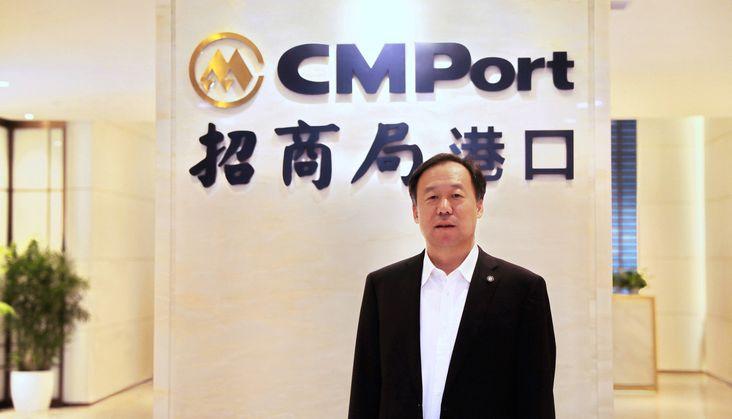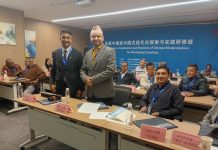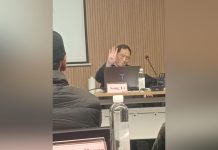
Africa-Press – Lesotho. The director general of China Merchants Port Holdings talks about exporting the Port-Park-City model created in the Chinese city of Shekou to Africa as the company looks to gain a firm foothold on the continent
Big state-run conglomerates like China Merchants Group (CMG) – which is active in the ports, banking and insurance sectors – are at the forefront of China’s Africa policy.
Through its control of China Merchants Port Holdings (CMPort) and other entities, CMG is China’s biggest port operator. It manages 36 terminals in 18 countries.
Three of the ports are in Africa, where CMPort has been active since 2007. It took control of Nigeria’s Tin-Can Island Container Terminal (TICT) in that year and then took minority stakes in ports at Lomé in 2012 and Djibouti in 2013.
Also in CMG’s orbit is the operator Terminal Link, after purchasing a 49% stake from France’s CMA CGM in 2013. That gives the conglomerate indirect stakes in projects in Tangier, Casablanca and Abidjan.
Amidst tough competition from players like Bolloré, APM Terminals and DP World, CMPort won two of the most sought-after port concessions on the continent: those at Nigeria’s Lekki and the planned Bagamoyo port in Tanzania.
CMPort is said to be in the race to buy a stake in Ethiopian Shipping & Logistics Services Enterprise, which would expand the port company’s business by giving it the ownership of a dozen ships used for Ethiopia’s imports and exports.
That would strengthen CMG’s role in Beijing’s ambitious One Belt One Road Initiative, which seeks to build trade and infrastructure ties between China, Asia, the Middle East, Europe and Africa.
The Africa Report: What is your role in China’s Belt and Road Initiative? Jingtao Bai: We consider ourselves the natural executor of the Belt and Road Initiative.
In recent years, we have actively expanded business along the Belt and Road countries, and have become an important participant and promoter of the Belt and Road Initiative. Djibouti seems to play a large role in your plans.
Why is that?
Djibouti is located at the mouth of the Red Sea, which is very close to the major Asia-Europe shipping route and is an important gateway port for the hinterland countries within the region.
The importance of its geographical location gives it the potential to become a regional shipping centre. Our investment in Djibouti is not limited to ports but also an international free trade zone and urban development, called the Shekou Port-Park-City (PPC) comprehensive development model.
What would be the impact, for your activities in Djibouti, of the next arrival of modern deepwater ports in Berbera or Massawa? We are aware of the construction of other ports within the region.
However, we believe that Djibouti port has its absolute advantages in terms of location, facilities and service quality. Moreover, it is costly for customers to reshuffle the shipping routes to the other ports.
We have great confidence in Djibouti’s port business. What are your expectations and ambitions in Nigeria? TICT is the most efficient container terminal in Lagos, offering services to 14 shipping companies calling in Lagos.
After CMPort invested in TICT, we made an overall evaluation and made a major investment in facilities and equipment, which has significantly improved the terminal productivity.
TICT employs about 610 staff, with the goal of turning TICT into the most efficient terminal in Nigeria through direct links to the main motorways in the city and its industrial centres, as well as exploring waterways transport, so as to promote the development of local foreign trade.
We have already recovered all our investments
With our continuous efforts, we have already recovered all our investments by the year 2017, which fully proved our foresight and validity in investing in TICT
Nigeria is Africa’s largest economy, with the potential of replicating the PPC model. We will explore this possibility at a suitable time in the future. Do you worry that the Togolese market is too small for your operations there?
Lomé Container Terminal (LCT) is the only deepwater port in the Gulf of Guinea in West Africa [. . . ] Its maximum design capacity can reach up to 2.2 million twenty-foot equivalent unit (TEUs) per year.
LCT resumed the ramp-up momentum and recorded a substantial growth of 36.1% year-on-year to 0.49m TEUs in the first half of 2018.
The economy of West Africa is expected to continue to rebound in 2018 alongside the increase of oil prices and other basic materials, which will create a favourable environment for LCT to continue the ramp-up.
The media have talked a lot about the Hambantota port deal, a 99-year lease signed in July 2017 with the Sri Lankan authorities to address its debt to China after the port did not attract the business to repay the loan.
Would this kind of deal be possible in Africa? Our investment in Hambantota is entirely based on commercial considerations. It is a public-private partnership project jointly developed with the port authority of Sri Lanka and has nothing to do with debt relief. At the same time, our investment in Africa is also completely business driven.
For More News And Analysis About Lesotho Follow Africa-Press





